




 |
   |
 |
|
Jeremy B BC Camplight BZN Baba Scholae |
Baba Yaga Clay Babb Babe Ruth |
Baby Back Door Miriam Backhouse |
Backnee Horn Badger [UK] Badly Drawn Boy |
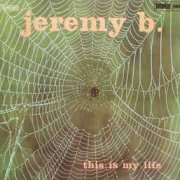 |
This is My Life (1971, 35.01) **½/½This is My LifeI'm a Looser Please Answer Why I'm So Thankful Do You Really Nobody Knows You Ballade of Rosy the Prostitute Got to Take it Easy Don't Look Away |
Current availability:
Mellotron used:
Karl-Heinz "Jeremy B." Bender utilised several 'names' from the German scene for 1971's This is My Life, not least guitarist Rainer Marz. If only the end result had been a little less bland... This is a country/blues-style singer-songwriter effort, badly dated; Do You Really's key-changes elevate it slightly above its mates, but it's pretty slim pickings, frankly. And, I'm A Looser...?
Pete "Wyoming" Bender allegedly plays (Dierks' Studio's M400?) Mellotron, but the only place it even might be is the muted brass - something - heard under Herrmann Baersch's sax on Do You Really. Scrapes **½, frankly.
 |
How to Die in the North (2015, 40.40) **/TTYou Should've Gone to SchoolLove Isn't Anybody's Fault Just Because I Love You Grim Cinema Good Morning Headache Thieves in Antigua Atom Bomb Lay Me on the Floor Why Doesn't Anybody Fall in Love Anymore |
Current availability:
Mellotron used:
Although himself American, it seems the current lineup of Brian Christinzio's BC Camplight is largely British, after his temporary relocation to Manchester. His/their third release, 2015's How to Die in the North, is an early '60s-influenced indie album, with rather too much emphasis on twee, twinkling sounds for this listener's taste, frankly. It actually features a fair bit of stylistic variation, diverging from the standard indie template of openers You Should've Gone To School and Love Isn't Anybody's Fault with the insipid likes of Just Because I Love You and Atom Bomb, the manic rockabilly of Lay Me on the Floor and the Spector-esque Thieves In Antigua.
Mellotron is credited to Christinzio, Hattie Coombe and Zora King. Regarding its use, here's a quote from Christinzio:
| "I then scrapped all of the string orchestration (there was 2 months down the tubes) in favor for a real sampling mellotron that probably cost my entire budget". |
A 'real sampling Mellotron'? What is he talking about? Since using samples is hardly going to cost anyone's 'entire budget', perhaps it's actually real? In fairness, the strings and flutes on Love Isn't Anybody's Fault sound pretty good, with more of the same on Good Morning Headache and is that a flute line doubling the piano in Lay Me On The Floor? A single string swell on closer Why Doesn't Anybody Fall In Love Anymore (wot? No question mark?) leave us with two decent Mellotron tracks, which makes a nice change from the usual.
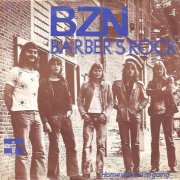 |
7" (1974) ***/T Barber's Rock Home Where I'm Going |
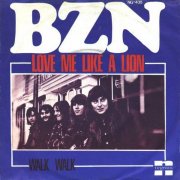 |
7" (1974) ***/½ Love Me Like a Lion Walk Walk |
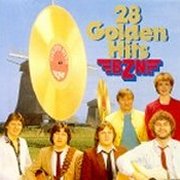 |
28 Golden Hits (1983, 98.40) */T |
|||
| Just an Illusion Don't Give it Up Blue Eyes We All Will Dance Twilight Les Gens de Tours les Jours The Valley |
Oh Me Oh My The Clown It's All Right Put on Your Make-Up La Musiquette Just Say I'm Home May We Always Be Together |
Mon Amour Marching on Pearlydumm Rockin' the Trolls Chanson d'Amour Cry to Me The Old Calahan |
Lady McCorey Sevilla Just Take My Hand Don Luigi America Hang on to a Dream Himalaya |
|
Current availability:
Mellotron used:
Oh dear. Ohdearohdearohdear. Well, never let it be said that I don't descend into the fiery pits of musical hell for your reading and listening pleasure... (?) According to the lengthy English-language band history on their website, BZN (The Band With No Name, apparently. I wonder what the acronym is for 'The band with no talent'?), formed in the mid-'60s, releasing their first album, the entirely uncharacteristic The Bastard in 1971. After their brief flirtation with hard rock, they made what appears to be a business decision to change their style and after several years of the odd single here and there, began an annual run of releases in '77 that has continued until the present day. The music? Try to imagine (if you will) a cross between schmaltzy mainstream Europop, Abba on an exceedingly off-day and German schlager music. Not so much 'if you will' as 'if you can bear to'. I'm sure I've heard worse music, but off the top of my head I'll be buggered if I can remember where. Saying that, they do actually do it very well, although listening to a whole double album of hits completely numbed my brain until I could kickstart it again with some top-notch prog.
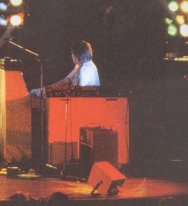 |
To backtrack for a moment... The band's run of early-to-mid-'70s singles were in more of a glam/not-very-hard rock style, two of which, both released in 1974, actually interest us here. Barber's Rock is a sprightly, classically-influenced boogie (kind of), complete with a mock-operatic piano/vocal section, actually more fun than that sounds, while Love Me Like A Lion is less striking, though perfectly acceptable for the time. Mellotron strings on both from Thomas Tol, distant-yet-distinct on the former, particularly towards the end, with even less of the same on the latter, for what it's worth.
Back to hell... Ignoring the two previous 'hits' compilations (the first being after all of three 'proper' releases), BZN released 28 Golden Hits in 1983, an unusual cross between the standard 'best of' and a live album, with side three (why not four? Why?) being live. The sleeve art tells you all you need to know; the downhome cheeriness of the band members, their dreadful fashion sense (I use the phrase extraordinarily loosely; note those 'noo wave' ties) and the jewel in the crown, the windmills with their vanes overlaid with gold records. Fabulous! It's a pity the cover reproduction here is so small; you can't really see the earnest/bored expressions on the faces of several of the band, notably the two guys in the middle, who look practically catatonic. I can only assume they were force-fed the contents of this album just moments before the photo-shoot. The singer looks a lot like Father Ted; so does the guy standing next to her.
Er... Mellotron? Well, as you can see from this heavily-cropped pic from the inside of the gatefold (you'll thank me for this), keyboard player Tol's rig consists of an upright piano, a Prophet V and a Mellotron M400. In 1982? Odd, but there you go. He only actually uses it on the first one of the seven live tracks here, Mon Amour, a cheesy French-language effort, which takes its place alongside many other similarly cheesy English-language efforts. I can't honestly recommend this album and thus anything else the band have ever recorded to anyone other than elderly Dutch people, hardcore masochists or the terminal insomniac. Even then, I suspect it's more likely to irritate than send one to sleep. Impeccably done, but impeccably done rubbish. One OK Mellotron track.
 |
69 (2013, recorded 1969, 46.31) ***½/½ |
|
| 1984/Melancolia Street Half Day Will Meant Ciment Julius La Chasse au Serpent à la Flûte Go Down Sunset Telegram Song My (My Lai) |
Kaleidoscope Keep it "Rythmique" Just Like George White Bird She's an Indian in Minor Song for a New Connection L'œil du Maître |
|
Current availability:
Mellotron used:
Baba Scholae were a short-lived psych/proto-prog outfit at the end of the '60s, whose lineup included Jean-Yves Labat de Rossi, who went on to play in the first version of Todd Rundgren's Utopia as M Frog Labat. Bizarrely, it's taken over forty years to find a release for their professionally-recorded tapes, finally issued in 2012 as 69 (their year of recording). But are they any good? Stylistically, they shift between early progressive (1984/Melancolia Street, the excellent She's An Indian In Minor), semi-avant- (Kaleidoscope, Keep It "Rythmique"), more backward-looking '60s fare (Julius, Go Down Sunset), even jazz (Song For A New Connection). In many ways a product of its time, this was a band that looked forward at least as much as back, making you wonder what they might have achieved had the dice rolled their way.
Jules Vigh plays Mellotron, although the only obvious use is the background string part on the brief La Chasse Au Serpent À La Flûte, making this of far more interest to fans of obscure psych and prog than to those of the Mellotron.
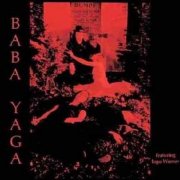 |
Baba Yaga (1974, 37.28) ***½/TTT |
|
| The Man Who Wants to Buy the World Waves In the Morning High Fly Rebekka Turdus Merula Powerful Hand Homage a.... |
Intoxication La Tombeau |
|
Current availability:
Mellotron used:
Ingo Werner (ex-My Solid Ground) released two albums in 1974 under the name Baba Yaga, so dissimilar, as has been pointed out elsewhere, it's as if they're by two different bands. The second, Collage (****), almost defines the much-maligned term 'krautrock', being a document of two superb improvisations (or two edits from one longer one?), while its predecessor, Baba Yaga, actually sounds like... Gentle Giant. Well, in places, anyway. Is there anything wrong with that? No, there isn't, but the album is a little less original than its predecessor, although several pieces are in the same general vein. Top tracks? The balladic In The Morning, the Latin-esqe High Fly and the gorgeous-if-unfortunately-named Turdus Merula, to name but three; frankly, nothing here's completely disposable, although the quality dips slightly in places.
Werner plays Mellotron, with upfront string and flute parts on the gentle In The Morning and Rebekka, while Turdus Merula is effectively a Mellotron flute and string arrangement over piano, with volume-pedalled string chords on Homage A.... and a flute solo (again over piano) on closer La Tombeau. I'm amazed how little-known this is, given the quality of the music, not to mention its Mellotron content (perhaps surprisingly, I don't seem to be the only aficionado on the 'Net); all fans of underground '70s German music need to hear this, while the Mellotron makes it worthwhile for you lot.
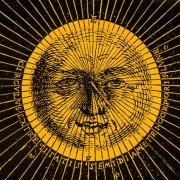 |
If it is What it is (2001, 31.02) ***/TTTNo FoolsWhite Unit Wrecker Transparent Invader Future Space Cities Far Away |
Current availability:
Mellotron used:
I remember Clay Babb's name from the Mellotronists' e-mail list, back when we were all first online; the reason it's taken me so long to track down any more info is that Allmusic, YouTube and other sites list him as Glay Babb. You know, Glay? You know a Glay or two, right? Clay's If it is What it is has completely confounded my expectation by being, instead of the expected introspective singer-songwriter effort, a modern metal album, taking its cue from Metallica et al., adding a soupçon of unexpected melody in places. I'm not sure I can recommend any one track over any other; suffice to say, this half-hour mini album does the job if you're after squealing guitars overlaid with genuine Mellotron.
Speaking of which, Babb and Tom Doty both play (I presume) Clay's M400, holding off on the first two tracks, as if to accentuate its use on the rest of the release. A strings part opens Unit, reiterating throughout, with background choirs later on, minimal chordal strings on Wrecker, major string (and minor choir) parts on Transparent Invader and heavy strings on Future Space Cities and closer Far Away, working surprisingly well with the sonic onslaught in which they're set. I don't know whether Clay ever released anything else under his own name; he's relocated to Japan these days, but I don't know whether he still owns that Mellotron.
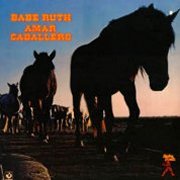 |
Amar Caballero (1973, 35.37) **½/½ |
|
| Lady Broken Cloud Gimme Some Leg Baby Pride Cool Jerk We Are Holding on Doctor Love |
Amar Caballero El Caballero de la Reina Isabella Hombre de la Guitarra El Testament de n'Amelia |
|
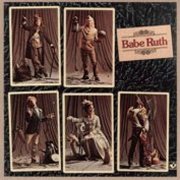 |
Babe Ruth (1975, 38.27) ***/TTDancerSomebody's Nobody A Fistful of Dollars We People Darker Than Blue Jack O'Lantern Private Number Turquoise Sad But Rich The Duchess of Orleans |
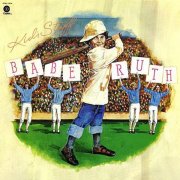 |
Kid's Stuff (1976, 39.09) **/½Oh! Dear What a ShameWelcome to the Show Since You Went Away Standing in the Rain Sweet, Sweet Surrender Oh! Doctor Nickelodeon Keep Your Distance Living a Lie |
Current availability:
Mellotrons used:
Babe Ruth (named for the legendary American baseball player) were another of those so-so, a bit heavy, a bit proggy type of mid-'70s outfits, albeit better than many. Their debut, First Base (***), tends to be their most highly-rated album, though aside from excellent opener Wells Fargo, it's all a bit ordinary. They followed it with Amar Caballero, which (to my ears, at least) was a serious step backwards into vaguely funky territory, with efforts such as Gimme Some Leg and Cool Jerk being worthy of major avoidance, although there are a handful of more acoustic numbers, including Baby Pride and the instrumental violin-led We Are Holding On. The album's clear standout track is Amar Caballero itself, a three-part flamenco-influenced piece, with excellent acoustic work from guitarist Alan Shacklock. As far as his Mellotron goes, it's hard to say if there's anything at all; I believe the flute on a couple of tracks is real and the 'choir' at the end of Baby Pride is possibly one singer multi-overdubbed - it also breaks the eight-second limit, though that can be circumvented in the studio. Hardly a Mellotron classic, then.
Third album, Babe Ruth, is better than its predecessor, but the band appear to run out of ideas by side two and the album rather runs out of steam. There's some reasonable Mellotron flutes and strings on four tracks, played by Shacklock again, but it's no classic, I'm afraid. However, it's interesting in its choice of covers; Sergio Leone's theme music to A Fistful Of Dollars is worth a listen and their proggy Mellotron-fuelled take on Curtis Mayfield's anti-racism anthem We People Darker Than Blue is also worth the effort. The band's last album until a brief 2000s reformation, '76's Kid's Stuff, is utterly lacklustre, if truth be told; this, like so many others from the time, is why punk happened, folks. Is any of its 'middling rock' any good? Six-minute closer Living A Lie is a serviceable blues, but the brief, instrumental Nickelodeon, while hardly a classic, is still the best thing here, with some adventurous synth work. Everything else? Drivel. With two credited keyboard players, neither credited with Mellotron, it's impossible to know who plays the appropriately distant choirs on Keep Your Distance, so it could be either Steve Gurl or the rather (!) better-known Don Airey, to no great effect, frankly.
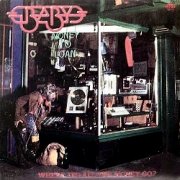 |
Where Did All the Money Go? (1976, 36.35) ***/T½Where Did All the Money Go?Still in Love One Hundred & One Turndowns Brown Eyed Lady I Need You L.A. Lady Easy Street, Hard Luck Avenue Yesterday's a Friend of Mine The World is Waiting for You (South of the Border) |
Current availability:
Chamberlin used:
Baby's 1975 eponymous debut is apparently a ZZ Top-style 'suvvern boogie' album, but by their swansong, the following year's Where Did All the Money Go?, they'd softened their approach a little, although a few tracks still fall into the 'rock till you drop' category. The opening title track says it all; a band, burnt out from years on the road, wondering what exactly did happen to all the money they'd earned? Sly musical quotes from the old chestnut Money and, oddly, England Dan & John Ford Coley's I'd Really Love To See You Tonight, presumably in the charts as Baby were in the studio. Personal favourite on the album is the semi-epic L.A. Lady, shifting gears halfway through to a ripping solo from Johnny Lee Schell, before dropping back down, then picking up again... You get the picture.
Chamberlin (probably hired in) from Schell, with an odd little string part on Brown Eyed Lady and a more straightforward one on L.A. Lady, though very little other keyboard work at all; fair enough, given that they didn't have a full-time player. As a postscript, Baby split soon after the album's release, the good news being that various members went on to play with some high-profile names, so unlike many similar outfits, their individual skills weren't lost to the world.
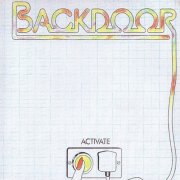 |
Activate (1976, 36.31) ***/½You Got EvilThru the Zig Zag Gate Train Won't Blow Dragonfly Eliminate Speedwalker Roll on Moon Mad Woman Cryin' Inside |
Current availability:
Mellotron used:
Imagine walking into a pub, high on the Yorkshire moors, to be confronted by a mad jazz-rock trio who are going down a storm. It must be 1971, you must be at The Lion in Blakey Ridge, you must be watching Back Door. Their original lineup was sax/bass/drums, the bassist being Colin Hodgkinson, who bizarrely went on to play in Whitesnake in the early '80s. Hey, we all gotta make a livin'... After their inauspicious beginnings, Back Door ended up signed to Warners, releasing four albums over five years, 1976's Activate being their last, as the world moved away from music made for its own sake. Hodgkinson had begun singing on their second record, '74's 8th Street Nites (you can tell they'd gone to the States, can't you?), because, as he admitted, he was the "least bad" singer in the band, but the album's best moments are instrumental, Hodgkinson's outrageous 'lead bass' playing (listen to Moon Mad Woman) augmented by saxophonist Ron Asprey's keyboards, largely Rhodes, although some tracks still stick to their original trio formation.
Asprey plays Mellotron on opener You Got Evil, with a brief but unusual 'choppy' single-note choir part at the end of the piece, although he resists the temptation to use it anywhere else, sadly. I assume it was a studio machine that he decided to stick on the track on a whim; sad to say, I can't ask him, as he died in 2003, not long after a brief reformation of their original lineup. If you can find a copy, this is worth it for jazz-rock (note: not fusion) fans. It seems that their first two albums are the only ones available on CD, which is a pity; they're a still-largely undiscovered corner of British jazz, ripe for reappraisal, although most sources say you shouldn't start with Activate.
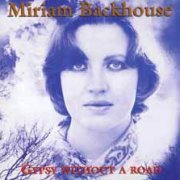 |
Gypsy Without a Road (1977, 32.27) ****/TFar Away TomThe Widow The Farmers Have Gone East Long Lankin Nasty Spider The Dark Side of the Moon John Riley Keys of Canterbury Gypsy Without a Road |
Current availability:
Mellotron used:
Miriam Backhouse's Gypsy Without a Road is a beautiful example of late-'70s folk that combines traditional and modern elements, without straying into 'rock' territory. She had (and hopefully still has) a wonderful voice, making you wonder why she never achieved greater recognition at the time, but then, there's a million factors that affect such things: timing, promotion, sheer good fortune... Opener Far Away Tom incorporates a string quartet, while The Widow heads towards the Renaissance period and Nasty Spider sees Backhouse regressing to her childhood, amongst other stylistic twists, the upshot of which is, every track sounds different to every other, making this an (almost-) lost gem from the UK folk scene, had those nice people at Vinyl Tap not issued it on CD in 1998.
My old friend Dave Etheridge (a couple of years before we met) played Mellotron on The Farmers Have Gone East, with a repeating polyphonic flute part and background cellos, although I believe the bowed double bass on John Riley is real. That isn't the reason you should track this down, though; what is is the excellent music contained herein. Backhouse, now a resident of South Africa, is apparently still touring and plays the UK regularly, so she hasn't fallen off the face of the earth. Miriam tells me her album's been reissued on the Mother Earth label, so do yourself and her a favour and buy a copy.
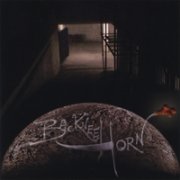 |
Backnee Horn (2009, 63.56) ***½/TTTTTZooming GloomingOutleting Storming Particles Far Away But Close Around the Karmal Line Multiple Streaming Encounter Exhale Inside a Shell Flaming Inside Gaming Malachite Stroke |
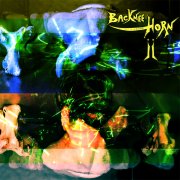 |
Backnee Horn II (2011, 96.10) ***/TTTHalopedalCircuit Morph Fly Lie Sun of No Son Rhino-Diaperism Dotted Hangar Ex-Idioms |
Current availability:
Mellotrons used:
Backnee Horn (no, I don't know what it means, either, if anything) are a new Israeli psych outfit, whose eponymous debut should be lapped up by psychonauts worldwide for its lysergic wanderings. Its main thrust is a kind of semi-improvised, modern take on the style, possibly comparable to Sundial at their trippiest, rather than to psych's historical forebears, muttered vocals (Hebrew? Invented language?) duelling with acid-drenched guitar and swathes of Mellotron (it's cliché city tonight at Planet Mellotron, folks). It's difficult to pick out any 'best tracks', although Outleting Storming Particles defines their style well enough to stand alone as a microcosm of the album as a whole.
Renowned Israeli Mellotronnist Zohar Cohen (Lemmus Lemmus, owner of Pink Floyd's old MkII) plays Mellotron throughout, with strings on everything but Outleting Storming Particles, flutes and choirs on several tracks, a smattering of cellos, an unidentified solo brass instrument here and there and even the MkII's left-hand manual 'moving strings' on closer Malachite Stroke. The vibes may well be Mellotronically-produced, too, not to mention other distant, reverbed sounds.
Two years on, Backnee Horn II drops any attempt to pretend the band are in any remote way 'normal'. Nearly a hundred minutes of freeform psych madness, much of this album falls outside the boundaries of most people's idea of 'music', I suspect, with only the odd moment of near-melody (usually from the Mellotron) to leaven its effect on the listener. Cohen on both his Mellotrons again, by the sound of it, with strings and flute parts on everything except Dotted Hangar, other use including a skronky MkII sax line and M400 choirs on Fly Lie, with occasional choirs elsewhere.
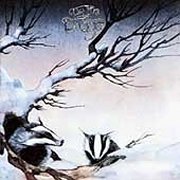 |
One Live Badger (1973, 40.55) ***½/TTT½Wheel of FortuneFountain Wind of Change River The Preacher On the Way Home |
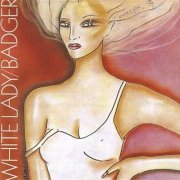 |
White Lady (1974, 42.46) **/T½ |
|
| A Dream of You Everybody - Nobody Listen to Me Don't Pull the Trigger Just the Way it Goes White Lady Be With You Lord Who Give Me Life |
One More Dream to Hold The Hole Thing |
|
Current availability:
Mellotrons used:
Badger were formed after keyboardist Tony Kaye left Yes in 1970, although One Live Badger wasn't recorded until December '72. I don't know who decided to take the unusual step of debuting with a live album, but the end result is pretty good and I suppose it saved on studio costs; the initial pressing featured a wonderful 'pop-up' badger inside the excellent Roger Dean sleeve, which must've eaten up most of their promotional budget. Despite Kaye's apparent dislike of the Mellotron and his alleged refusal to play one on The Yes Album, he gets some onto every track on this album, recorded, incidentally, over two nights at London's Rainbow Theatre, supporting... Yes.
Some of the tracks only feature a few seconds of strings, but Wheel Of Fortune and On The Way Home, to name but two, have Mellotron all over them. The only reason I don't give the album a higher 'T' rating is the relatively unambitious arrangements; just because there's a lot of Mellotron on an album doesn't mean it's great Mellotron. Conversely, if there's only a couple of significant tracks (see King Crimson's debut), but they're killers, the full rating may well be awarded. Musically, the album reminds me slightly of Greenslade, in that the band's r'n'b roots show through quite clearly, despite the progressive overtones of their sound. The compositions aren't bad, but I don't really hear any classic material here, although it's a perfectly good listen.
After several lineup changes, the two remaining original members took on vocalist Jackie Lomax, who effectively used the band to play his R&B-tinged compositions. As a result, it probably isn't so surpring that they opted to have noted New Orleans legend Allen Toussaint produce White Lady and I'm afraid the end result's pretty awful. If you like soulful R&B, you may go for this album, but for the prog fan it's an utter disaster. There's some pretty uninspired Mellotron on a couple of tracks, but nothing to write home about. I'm sure this album's good at what it does, but I'd really steer well clear of this one.
See: Yes
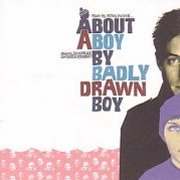 |
About a Boy (2002, 44.03) **½/T |
|
| Exit Stage Right A Peak You Reach Something to Talk About Dead Duck Above You, Below Me I Love N.Y.E. Silent Sigh Wet, Wet, Wet |
River-Sea-Ocean S.P.A.T. Rachel's Flat Walking Out of Stride File Me Away A Minor Incident Delta (Little Boy Blues) Donna and Blitzen |
|
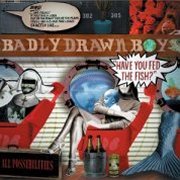 |
Have You Fed the Fish? (2002, 45.48) **½/T |
|
| Coming Into Land Have You Fed The Fish? Born Again 40 Days 40 Fights All Possibilities I Was Wrong You Were Right CentrePeace |
How? The Further I Slide Imaginary Lines Using Our Feet Tickets to What You Need What is it Now? Bedside Story |
|
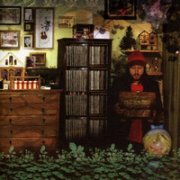 |
One Plus One is One (2004, 55.16) **½/T |
|
| One Plus One is One Easy Love Summertime in Wintertime This is That New Song Another Devil Dies The Blossoms Year of the Rat Four Leaf Clover |
Fewer Words Logic of a Friend Stockport Life Turned Upside Down Take the Glory Holy Grail |
|
Current availability:
Chamberlins/Mellotron used:
So what, precisely, was all the fuss about re. Damon "Badly Drawn Boy" Gough? To hear the media bleat on about him at the time, you'd think he was the bloody second coming. His second album, 2000's The Hour of Bewilderbeast, won the much-coveted Mercury Music Prize; well, it invariably boosts sales manyfold - I'm not surprised it's much-coveted... Going by the evidence here, Gough is bland, dinner-party singer-songwriter fare, with much unnecessary studio tarting. Very safe. Of course he won that prize.
2002 brought his soundtrack to the film adaptation of Nick Hornby's About a Boy. Now, we all know that soundtracks are invariably a mixed bag, with incidental music that frequently makes little sense outside its dramatic context, making this one better than most, or at least, more cohesive. Nevertheless, Gough's songs are pretty bland, leaving some of the short instrumental pieces as the album's highlights, although that isn't saying much. Chamberlin from Jon Brion, with a queasy pitchbent, er, something on A Peak You Reach, with nothing obviously audible on Above You, Below Me (the strings are real), ditto on Delta (Little Boy Blues), although Donna And Blitzen has some very upfront male and female voices, with a solo male voice standing out nicely.
Later that same year, BDB released Have You Fed The Fish?, which turned out to be no more than a more song-orientated version of its predecessor, certainly in the sonic department. Brion and Gough played Chamby this time round, with nothing obvious on How? but nice flutes on The Further I Slide, while Tickets To What You Need reprises the choirs from his previous album. Two years on and One Plus One is One catches Mr. Gough in his immediate post-fame years (unlike its predecessors, you rarely see this album in charity shops); it's actually slightly more palatable than said predecessors, although I wouldn't actually take that as a recommendation. Gough plays Mellotron himself, with a major (and quite real-sounding) string part on The Blossoms, although that would appear to be your lot.
So; please don't buy these albums. Gough almost certainly has enough money already and I dislike him for a) always wearing a woolly hat and b) thinking it's clever to smoke on camera. Oh and c) for making horrible mainstream albums like these. AND d) for being, hands-down, the most obnoxious performer I've had the displeasure to witness at around thirty Cropredy Festivals. What a dick. One or two decent Chamby/Mellotron tracks, but I don't want to catch any of you buying them for that reason.